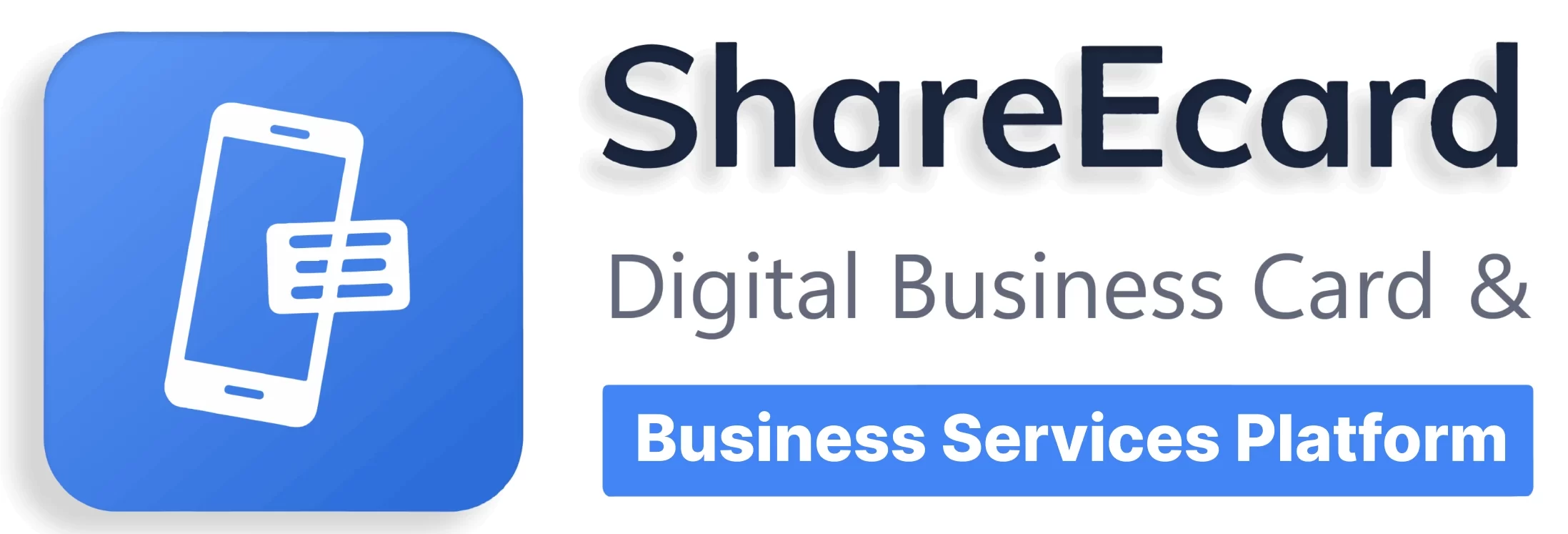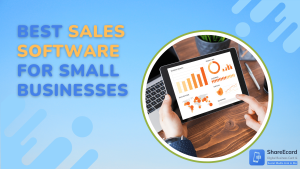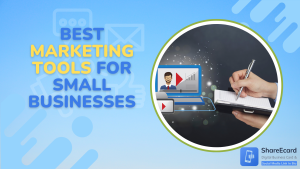In a highly competitive, digital-first economy, small businesses need tools that are cost-effective, scalable, and capable of delivering real ROI. Among the most underestimated yet powerful tools is the digital business card – a modern upgrade to the traditional networking staple. It not only simplifies contact sharing but also integrates seamlessly into marketing, CRM, and even AI ecosystems.
This guide covers every critical angle of how digital business cards empower small business growth – from technology and integration to marketing, automation, and future potential.
1. Small Businesses: The Backbone of the U.S. Economy
Before exploring the technology, it’s important to understand the market:
- There are 33.2 million small businesses in the United States.
- They represent 99.9% of all U.S. businesses.
- They employ 46.4% of the private workforce, or over 61 million people.
- Small businesses contribute 43.5% to the national GDP.
- They create two out of every three new jobs annually.
U.S. Small Business Impact Overview
| Metric | Value |
| Total Small Businesses in the U.S. | 33.2 million |
| Percent of All U.S. Businesses | 99.9% |
| Percent of Private Workforce Employed | 46.4% |
| Contribution to U.S. GDP | 43.5% |
This data highlights just how essential small businesses are to the health of the U.S. economy. Empowering them with digital tools like business cards can result in a ripple effect of increased efficiency, visibility, and competitiveness.
2. What Are Digital Business Cards?
A digital business card is an online or app-based version of a traditional business card. It allows businesses and professionals to share contact information, brand assets, and media interactively and instantly.
Key Features:
- QR Code Accessibility: Easily scannable for fast, contactless sharing.
- NFC Compatibility: Tap-to-share functionality with compatible smartphones.
- Custom URLs: Personalized, professional web links to share anywhere.
- App Integration: Compatible with mobile devices and social platforms.
- Media Embeds: Include videos, brochures, case studies, or product demos.
Digital business cards allow you to go beyond a name and number – you can tell a story, build trust, and provide a seamless next step for the prospect.
3. Key Benefits of Digital Business Cards for Small Businesses
Cost-Effective Branding
Traditional print marketing incurs ongoing expenses for design, printing, shipping, and reprinting with every update. Digital cards eliminate these costs and offer centralized brand control. Employees or teams can use custom-branded templates while maintaining company-wide consistency.
Eco-Friendly and Sustainable
Digital business cards reduce paper waste, carbon emissions from printing, and physical clutter. For sustainability-minded businesses or consumers, this digital shift supports environmental goals and ESG (Environmental, Social, and Governance) initiatives.
Real-Time Editing
Contacts are always up-to-date. Need to update a phone number or job title? You can make instant changes without having to resend or reprint. Clients and partners always access the latest version, ensuring professional accuracy.
24/7 Accessibility
Digital cards are mobile-optimized and saved directly to a user’s device. This means your business is accessible anywhere, anytime—whether at a trade show, online meeting, or casual interaction. They can be shared via text, email, social media, or even printed as QR codes.
4. Integration Capabilities That Drive Growth
CRM Integration
Digital business cards can sync directly with Customer Relationship Management (CRM) systems such as Salesforce, HubSpot, Zoho, and Pipedrive. This allows businesses to:
- Automatically import lead information from card interactions.
- Assign contacts to specific sales pipelines.
- Track engagement over time.
Email Marketing Integration
Connected tools like Mailchimp or ActiveCampaign allow you to:
- Add new contacts to segmented email lists.
- Trigger drip email campaigns upon contact capture.
- Personalize email content based on user interaction with your card.
Analytics Dashboards
Business owners can monitor:
- Total card views and open rates.
- Link clicks and button engagements.
- Location data and time stamps.
- Overall conversion metrics.
This actionable data helps fine-tune marketing campaigns and sales strategies.
5. Industry-Specific Use Cases
Real Estate
Agents can use digital cards to share property listings, virtual tours, and booking calendars. NFC or QR cards at open houses can capture visitor data instantly.
Health & Wellness
Trainers, therapists, and clinics can showcase services, testimonials, appointment systems, and FAQs directly on the card. This reduces front desk friction and enhances client experience.
Freelancers & Creatives
Photographers, designers, writers, and consultants can integrate portfolios, resumes, sample work, and contact forms, offering a one-stop destination to attract and convert clients.
Trades & Home Services
Plumbers, electricians, landscapers, and other service providers can include service catalogs, license info, customer reviews, and emergency contact buttons.
6. Team and Enterprise Use
Digital business cards are scalable across organizations, including franchises and remote teams.
Features Include:
- Admin Dashboards: Central control to create, edit, and manage all employee cards.
- Role-Based Access: Define who can edit what—ideal for sales, HR, or marketing teams.
- White-Label Branding: Keep your brand consistent across hundreds of digital cards.
- Bulk Deployment: Create cards in batches with CSV uploads or HR integrations.
7. Future Potential: AI + Digital Business Cards
AI-Powered Personalization
Digital cards will evolve to adapt content automatically based on user behavior or context. For example, someone clicking a product link may later receive a version of your card focused on that offering.
Intelligent Networking
AI can suggest optimal follow-up times or identify which leads are most likely to convert. It can analyze email domains, job roles, and behavior patterns to assist in scoring and prioritizing leads.
Embedded Chatbots
Imagine a visitor scanning your card and immediately engaging with an AI assistant. This bot can:
- Schedule meetings.
- Answer FAQs.
- Provide guided navigation based on visitor goals.
Predictive Analytics
Advanced platforms will offer predictions like:
- Lead conversion likelihood.
- Most effective content for target audiences.
- Ideal timing for outreach.
These capabilities bring automation and intelligence to what was once a static medium.
8. Security, Compliance, and Data Ownership
Digital business card platforms follow strict security protocols to ensure safe data handling.
- GDPR & CCPA Compliant: Meets international and U.S. privacy standards.
- Encrypted Data: Information is protected in transit and at rest.
- Custom Domains & SSL: Branded URLs with secure HTTPS connections.
- Permission-Based Sharing: Users control what data is visible and to whom.
This makes them viable for legal, financial, medical, and other regulated sectors.
9. Barriers to Adoption (and Solutions)
Common Concerns:
- “Will my clients understand how to use this?”
- “Is it worth switching from printed cards?”
- “I’m not tech-savvy – will this be too complex?”
How to Overcome:
- Choose User-Friendly Platforms: No-code interfaces make it simple.
- Offer Onboarding Help: Provide quick training or templates for teams.
- Start Small: Pilot with a few employees or departments, then scale.
- Use Hybrid Cards: Print QR or NFC on physical cards for a smooth transition.
10. Why Small Businesses Should Adopt Now
Digital business cards are no longer a novelty – they’re becoming foundational tools for modern operations. As AI, automation, and digital marketing continue to advance, having a smart, trackable, scalable business card will become a competitive necessity.
Benefits include:
- Greater reach and accessibility
- Reduced marketing and operations cost
- Improved lead tracking and sales conversion
- Enhanced branding and professionalism
- Eco-conscious brand positioning
Whether you’re a solo consultant, growing agency, or multi-location franchise, digital business cards can help you grow faster, smarter, and more sustainably.




